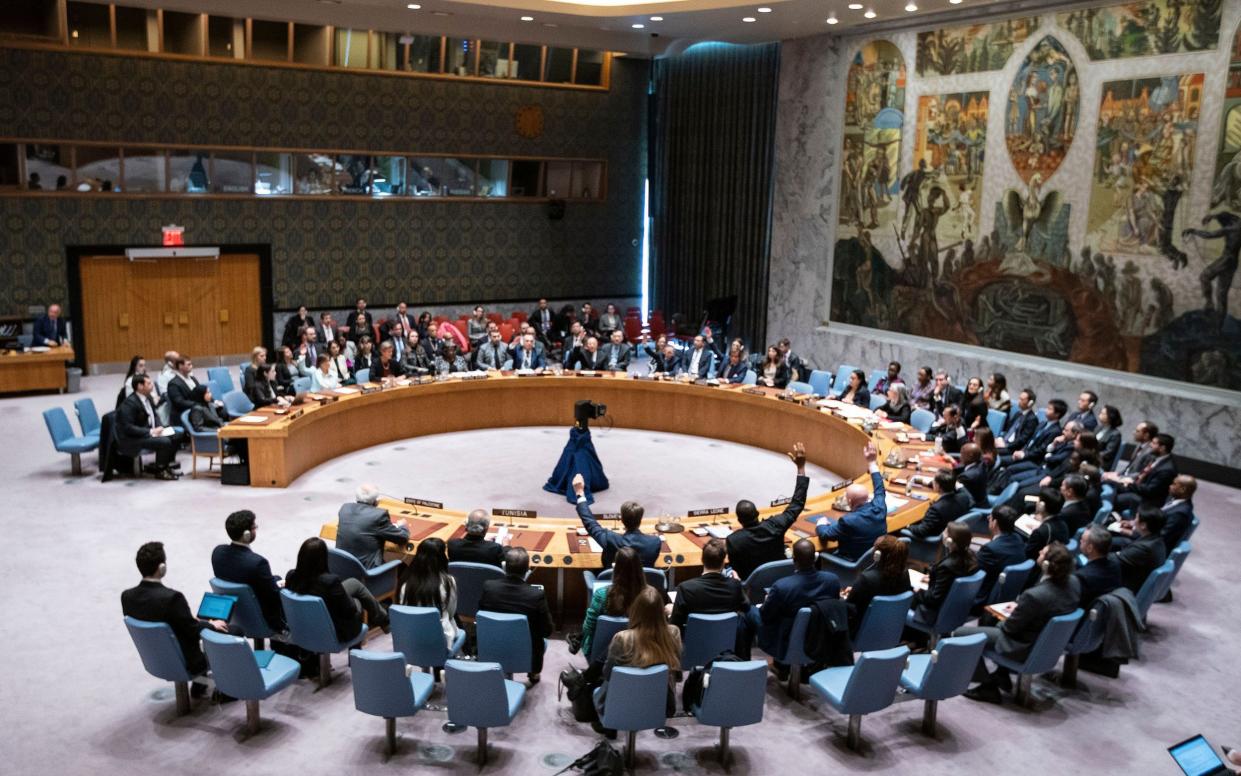The West is about to hand victory to Hamas

Just a few short months ago, the West claimed to stand united with Israel as it launched a war of self-defence after the atrocities of October 7. Now even Jerusalem’s closest allies seem to want to stop the conflict in Gaza before the Israel Defence Forces have achieved its objectives of the destruction of Hamas and the release of the hostages taken by the terrorists.
The West has developed a defeatist tendency in recent years of pursuing negotiated settlements that never really lead to peace, only to running sores that inevitably flare up again and again, or indeed to the victory of our enemies. Iraq and Afghanistan are both cases in point. The US’s new draft United Nations Security Council resolution on the war in Gaza could well be set to become another.
The text says that a major Israeli ground offensive into Rafah should not proceed “under current circumstances” – that is, with a heavy concentration of refugees from elsewhere in Gaza on top of the existing residents. The US is also calling for a “temporary” ceasefire “as soon as practicable”.
It is what the resolution doesn’t demand that is perhaps most telling. The US appears to have little interest in practical solutions consistent with both safeguarding the civilians of Gaza and permitting Israel to achieve victory over Hamas.
The obvious place for refugees to go temporarily is across the border into Egypt, where there are vast empty spaces and infrastructure for the United Nations and Egyptian authorities to provide shelter, aid and medical assistance. But the US draft resolution seems to exclude this possibility altogether.
Egypt is understandably fearful of Hamas terrorists and their supporters entering its territory; it already has enough of a threat from like-minded Muslim Brotherhood extremists and the plethora of terrorist gangs that share Hamas’s jihadist ideology.
But the terrain in northern Sinai should allow for measures to mitigate dangers such as these, especially given Egypt’s powerful security forces. Surely, if it were truly standing behind Israel, the US would have found a way to encourage Cairo to play a role here?
It is hard to escape the conclusion that, instead, Joe Biden is no longer committed to Israel finishing Hamas off, largely because of domestic political considerations. And the danger is that what he really wants is not a “temporary” cessation to the fighting, but to impose a “peace” deal that would leave Hamas’s terrorist organisation partially intact and end up solving nothing.
What President Biden and his ilk seem incapable of recognising is that the Israeli people can accept no “solution” to the current conflict that leaves the country in a weaker position to the one that it occupied on October 6.
Indeed, the wider West appears to be forgetting how this war started. Israel did not want the conflict. It was the necessary response to the shocking crimes of October 7, the slaughter of civilians, and the taking of hostages – evil terrorist acts that Israel rightly wants to ensure can never happen again.
If the IDF does not move forward with its plans, Israel knows that it will only be a matter of time before we see another conflict in Gaza, as well as emboldened terrorists in the West Bank and on its northern border. Worse, the terrorists would know that the United States would never allow Israel to truly defeat them.
Prime Minister Netanyahu therefore has to act. If President Biden does manage to force the cancellation of the planned assault, he will need to turn to a temporary option. That would see Rafah isolated from the remainder of the Gaza Strip, with a strong defensive line established to the east of the city, parallel to the border with Egypt. Inside such an enclave, Hamas could do little to threaten Israel.
But this solution would see some hostages remain in the hands of Hamas, and is also the last thing Egypt wants. Rafah and its terrorist garrison could well effectively become Cairo’s problem.
It would be an infinitely inferior strategy to the obvious alternative: the United States and its allies steeling themselves to help Israel finish the war with the total defeat of Hamas.
Colonel Richard Kemp is a former British Army officer

